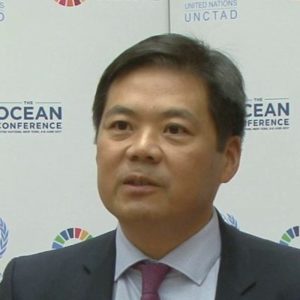Newsletter 17 Oct 2022
Environment: What’s Up in GENeva | 17 – 23 October 2022

The Geneva Environment Network’s weekly newsletter includes the latest information on the global environmental agenda, main events, job vacancies, learning opportunities, as well as other useful resources and updates. Stay tuned and follow us also on Twitter, Facebook, LinkedIn, Youtube, or visit our website regularly for additional updates.
Image of the week | A selection of CITES-listed species observed at the Bioparc Geneva, including (from left to right) the macaca fascicularis, the anodorhynchus hyacinthinus, the haliaeetus leucocephalus, the lemur catta, and the ara ararauna. The park is home to 250 animals, a third of which are threatened species in the wild. Its team of wildlife experts and enthusiasts works for the conservation of animal species, both local and exotic, through its key missions. Photos © UNEP/GEN Alice Schneider, 5 May 2021
World Wildlife Conference | From Geneva to Panama City
The upcoming 19th meeting of the Conference of the Parties to the Convention on International Trade in Endangered Species of Wild Fauna and Flora (CITES), or World Wildlife Conference, will take place in Panama, from 14 to 25 November 2022. Nearly 3,000 government officials, experts, representatives of local, national and international intergovernmental and non-governmental organizations technically qualified in protection, conservation or management of wild fauna and flora and visitors are expected to attend the meeting, and consider a total of 52 proposals and more than 100 working documents. A briefing, organized within the framework of the Geneva Environment Network, will take place on Tuesday 18 October, at 9.30 CEST. → Register to join us online or in person at the International Environment House II.
International cooperation to protect wildlife is more important than ever, with recent research highlighting the fast decline of wildlife species around the globe. According to the Living Planet Report 2022 released last week, monitored wildlife populations have declined by an average of 69% in the last half-century. Reviewing around 32,000 species populations, the report provides one of the most comprehensive measures of how wildlife is responding to pressures in their environment. The evidence reveals the dire impacts of the interlinked crises of climate change and biodiversity loss, with scientists calling on decision-makers to define stronger targets and commitments to reverse biodiversity loss at the upcoming 15th Conference of the Parties of the Convention on Biological Diversity in December.
Trade and the Environment | News from WTO
This week, the third edition of the WTO Trade and Environment Week will provide a platform for government officials, business representatives, international organizations, academics, and civil society to discuss ways to make global trade more sustainable, resilient, and inclusive. The forum allows for in-person participation for WTO accredited entities and online participation for all. Among the various insightful sessions, don’t miss:
- High Level Panel on Multilateral Trade and Environment Cooperation: Answering Crisis and Furthering Resilience | 17 October, 10.00 CEST
- A stocktaking side event organized by the coordinators of the Dialogue on plastics pollution and environmentally sustainable plastics trade | 18 October, 9.30 CEST | Coordinators of the WTO Dialogue on Plastics Pollution
- FFSR: challenges and opportunities in the context of an energy crisis | 18 October, 16.30 CEST | Friends of FFSR
- The WTO Fisheries Subsidies Agreement: From Words to Action | 20 October, 14.30 CEST | IISD
Also to note that:
- WTO members met last week at an informal retreat in Evian-les-Bains in order to share ideas and think creatively on how to approach the “second wave” of negotiations to further discipline harmful fisheries subsidies and underlined the urgent need to appoint a new chair to lead the negotiations.
- Participants in the Dialogue on Plastics Pollution and Environmentally Sustainable Plastics Trade reported progress on working towards “concrete, effective and pragmatic outcomes” for the WTO’s 13th Ministerial Conference (MC13), and welcomed Mexico, Samoa and Mauritius as new co-sponsors of the initiative, thus bringing the total number of supporters to 75 countries.
Plastic Pollution | Towards Punte del Este
Negotiations towards a global treaty on plastic pollution are getting closer, with the convening next month of the first session of the Intergovernmental Negotiating Committee (INC-1) to develop an international legally binding instrument on plastic pollution, including in the marine environment, will take place in Punta del Este, from 28 November to 2 December. Delegates, experts and other interested stakeholders from Geneva and beyond are invited to gear up for this process through the briefing hosted under the framework of the Geneva Beat Plastic Pollution Dialogues on 2 November.
A number of essential meeting documents have been published on the INC-1 website, including the provisional agenda and draft rules of procedures. The note on plastics science also provides key definition and scientific evidence for a common understanding of plastic pollution as the negotiations are launched. Another note details the broad options for the structure of the future agreement. Various experts and civil society stakeholders have shared they take on these documents → read a summary of key take-aways by Andrés Del Castillo from the Center for International Environmental Law (CIEL).
Every week, new reports and scientific studies are casting light onto specific aspects of plastic pollution. Latest news include:
- A Just Transition to Reusable Packaging – Necessary Conditions Benefits and Best Practice | Break Free From Plastic | October 2022
This report explores the potential socio-economic benefits of reuse systems, with a focus on the grocery retail and hotels, restaurants and cafés sector. While the transition to reuse systems brings both opportunities and challenges, this report provides recommendations for scaling-up reuse in line with just transition principles. - The Price of Plastic Pollution: Social Costs and Corporate Liabilities | Minderoo Foundation | 14 October 2022
The new report reveals that the social costs of plastic pollution – environmental clean-up, ecosystem degradation, shorter life expectancy, and medical treatment – exceed $100 billion USD per year. The report further points out that litigation could cost the plastics industry and its insurers $20 billion USD in the United States over the next eight years. The research was supported by the UNEP Finance Initiative, which will host a webinar on 19 October on the topic. - Microplastics found in human breast milk for the first time | The Guardian | 7 October 2022
Researchers have detected microplastics in human breast milk, as reported in a new scientific study. This raises concerns about the exposure to and impacts of plastic particles and additives on infants, a population particularly vulnerable to chemical contaminants.
Climate Change | Towards Sharm El Sheikh
Towards COP27: From Geneva to Sharm El Sheikh
Stakeholders in Geneva are highly involved in the preparations for the Sharm El Sheikh Climate Change Conference. With only three weeks left, various events taking place in Geneva this week will feature H.E. Mahmoud Mohieldin, the United Nations Climate Change High–Level Champion for COP27 for Egypt, including:
- Towards COP27: UNECE Regional Forum on Climate Initiatives to Finance Climate Action and the SDGs | UNECE | 17 October (9.00 – 18.00 CEST) at the Palais des Nations and online
- COP27: On the Political Economy of Climate Finance and Investment | 17 October, 18.15 CEST at the Graduate Institute (auditorium A2)
- Priorities for COP27: Finance, Investment and Projects | Briefing organized by the Permanent Mission of the Arab Republic of Egypt to the United Nations Office and other International Organizations | 18 October 2022, 16.00 CEST at the Egyptian Mission
WMO State of Climate Services & Climate Club Reports
WMO published last week its annual State of Climate Services Report, which includes inputs from 26 different organizations. This year’s report focuses on energy, drawing the clear conclusion that “switching to clean forms of energy and improving energy efficiency is vital if we are to thrive in the twenty-first century“, as stated WMO Secretary-General Prof Petteri Taalas. The report reveals that the supply of electricity from clean energy sources must double within the next eight years to limit global temperature increase. Otherwise, there is a risk that climate change, more extreme weather and water stress will undermine our energy security and even jeopardize renewable energy supplies. → Read the report
Following the G7 Leaders’ Statement on Climate Club of June 2022, experts from the London School of Economics and Political Science released a new report exploring the rationale and possible design of a such an endeavor. The independent report stresses that a Climate Club can be part of an effective global response to the climate crisis by enabling greater ambition and alignment. → Read the report
Loss and Damage
Meaningful progress must be made to address loss and damage beyond countries’ abilities to adapt as well as financial support for climate action, upheld the UN Secretary General earlier this month. Recent articles presenting the key related challenges include:
- Is the world keeping its COP 26 climate promises? | DEVEX News | 10 October 2022
- The Loss and Damage Negotiations Under the UNFCCC: Where Are We Now and Where to Next on the Road to COP 27? | L&DC | 7 October 2022 | See highlights on Twitter
- ‘Loss and damage’ debate set to dominate the COP27 agenda | Financial Times | 10 October 2022
Lead Pollution | No Safe Level of Exposure
The tenth International Lead Poisoning Prevention Week kicks off on Sunday 23 October. It aims to raise awareness about health effects of lead exposure, highlight the efforts of countries and partners to prevent lead exposure, and call for further action to eliminate lead in our environment. The theme of this year’s campaign “Say No to lead poisoning” reminds governments, civil society organizations, health partners, industry and others of the unacceptable risks of lead exposure and the need for action. Various events are coming up next week.
Lead is indeed a cumulative toxicant that poses serious risks to human health and development, with children being especially vulnerable. There is no known level of lead exposure without harmful effects, and even low levels may cause lifelong health problems and adverse environmental impacts. As the global UN hub for chemicals, waste and end-pollution governance, Geneva hosts many key organizations that work towards reducing lead exposure and addressing its health impacts. → Learn more in our update
What (Else) Should I Read Next?
- Global status of multi-hazard early warning systems: Target G | UNDRR | October 2022
On the occasion of the International Disaster Risk Reduction Day, UNDRR released its joint report with WMO, which assesses the current global status of multi-hazard early warning systems against Target G of the Sendai Framework. The findings identify countries’ challenges and note good practices in forecasting capabilities, early warning coverage, and systems to act on them. → Read more - Extreme heat: Preparing for the heat waves of the future | IFRC | 10 October 2022
This joint report by the International Federation of Red Cross and Red Crescent Societies (IFRC), United Nations Office for the Coordination of Humanitarian Affairs (UN OCHA) and Red Cross Red Crescent Climate Centre provides a sobering review of how the increase in deadly heatwaves threatens to drive new emergency needs in the not-so-distant future. - International E-waste Day: Of ~16 Billion Mobile Phones Possessed Worldwide, ~5.3 Billion will Become Waste in 2022 | WEEE Forum | 14 October 2022
Experts from WEEE called for enhancing recycling of small electronic appliances, as more than five billion mobile phone worldwide will likely be discarded or stashed away in 2022. Stacked flat on top of each other, that many disused phones would rise 50,000 kilometers, more than a hundred times higher than the International Space Station, the WEEE research consortium found. - ‘Babies have air pollution particles in lungs before first breath’ | STV News | 6 October 2022
Researchers from the University of Aberdeen have found that unborn babies have air pollution particles in their developing lungs and other vital organs as early as the first trimester. The study focused on black carbon, a material released into the air from internal combustion engines, coal-fired power plants, and other sources that burn fossil fuel. - East Antarctic glacier melting at 70.8bn tonnes a year due to warm sea water | The Guardian | 14 October 2022
Researchers from Australia’s national science agency have measured that the Denman ice shelf in east Antarctica is melting at a faster rate than previously thought. Scientists warn that the glacier is potentially at risk of unstable retreat and could contribute to more sea level rise than predicted. - The future of food: the diversity of food sovereignty systems at the local level is the backbone of global food security | ICCAs Consortium | 13 October 2022
On the occasion of World Food Day 2022, the ICCA Consortium issued a statement of solidarity with Indigenous Peoples and local communities, whose governance systems and cultural practices enable them to sustainably harvest and produce diverse and nutritious foods, both wild and cultivated, year-round. The consortium is calling on policymakers to divest from industries that directly undermine Indigenous and community custodians of territories of life and their food sovereignty systems, while investing in the enabling environments for such communities and food systems to flourish on their own terms. - «Il ne nous reste plus beaucoup de temps»: une scientifique climatique bloque la route avec Renovate Switzerland | Le Temps | 11 October 2022 | In French
Julia Steinberger, professor at the University of Lausanne et co-author of the IPCC report, was arrested during a protest of the mouvement Renovate Switzerland in Bern. The mouvement, which led five road blockage last week, is calling on the government to urgently take action to address the climate crisis. - How to Protect Forest Defenders in Brazil | Andrea Carvalho | Human Rights Watch | 14 October 2022
- Textile-producing nations unite to reduce chemical waste | UNEP | 14 October 2022
The Governments of Bangladesh, Indonesia, Pakistan and Viet Nam have joined forces to fight chemical pollution, launching a joint $43-million programme to manage and reduce hazardous chemicals in their textile industries.
Events
See all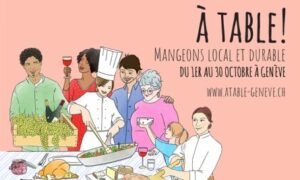
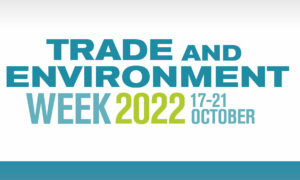
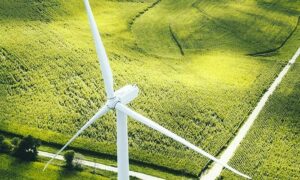
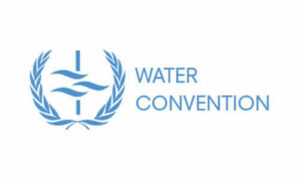
Workshop
Global Workshop on Water, Agriculture and Climate Change
17 – 18 Oct 2022
Palais des Nations, Room XXIV & Online
Water Convention
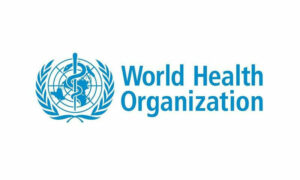
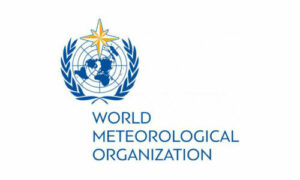
Body Meeting
2nd Session of the Commission for Weather, Climate, Water and Related Environmental Services and Applications (SERCOM-2)
17 – 22 Oct 2022
WMO HQ & Online
WMO
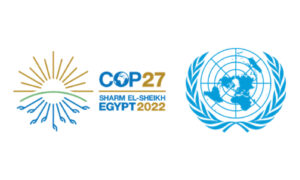
Conference
Towards COP27 | UNECE Regional Forum on Climate Initiatives to Finance Climate Action and the SDGs
17 Oct 2022 09:00 – 15:30
Palais des Nations, Room Tempus & Online
UNECE
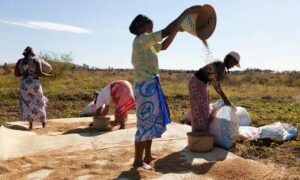
Conference
Famine | Action and Prevention
17 Oct 2022 12:00 – 14:00
Maison de la Paix, Room S8
IHEID

Conference
COP27: On the Political Economy of Climate Finance and Investment
17 Oct 2022 18:15 – 19:45
Maison de la Paix, Auditorium A2
IHEID

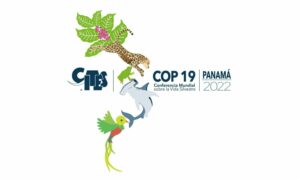
Conference
Briefing on the World Wildlife Conference | 19th meeting of the Conference of the Parties to CITES
18 Oct 2022 09:30 – 11:00
International Environment House II & Online | Webex
CITES, GEN
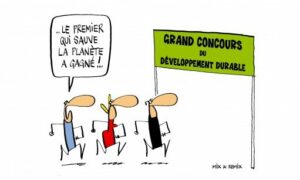
Conference
Cérémonie 2022 du Concours du développement durable
18 Oct 2022 10:30 – 13:00
Uni Mail
Republic and State of Geneva
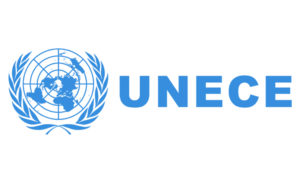
Conference
Energy System Resilience: The future of gas supply in Europe
18 Oct 2022 14:00 – 17:00
Palais des Nations, Room H-307.1 & Online
UNECE
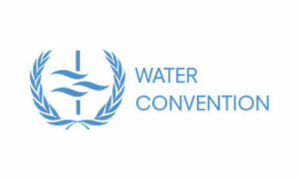
Body Meeting
13th meeting of the Task Force on Water and Climate
19 Oct 2022 10:00 – 16:30
Palais des Nations, Room XXIV & Online
Water Convention

Virtual
UNECE/UNESCAP Task Force on eCITES EPIX Pilots
19 Oct 2022 11:00 – 12:00
Online
UNECE, UNESCAP, CITES

Virtual
COP27 High-level Event: Delivering the Promise of a Global Just Transition
19 Oct 2022 14:00 – 15:30
Online
UNCTAD, Egypt
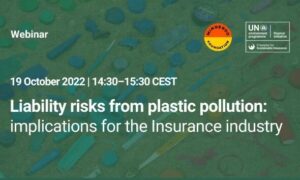
Virtual
Liability Risks from Plastic Pollution – implications for the Insurance industry
19 Oct 2022 14:30
Online
UNEP FI

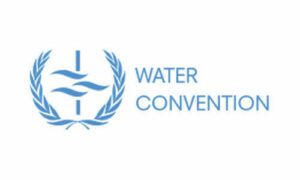
Body Meeting
33rd meeting of the Bureau of the Water Convention
20 – 21 Oct 2022
Palais des Nations, Room XXIV
Water Convention
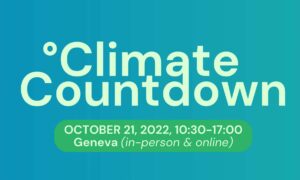
Conference
Climate Countdown | How to accelerate decisive action?
21 Oct 2022 10:30 – 17:00
The Humanitarium & Online
CAA
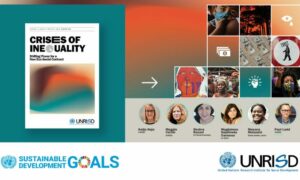
Conference
Crises of Inequality | Shifting Power for a New Eco-Social Contract | Launch of the UNRISD 2022 Flagship Report
21 Oct 2022 16:00 – 17:30
Palais des Nations, Townhall Foyer, Building H
UNRISD
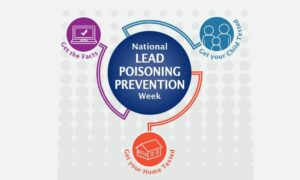
Jobs
See all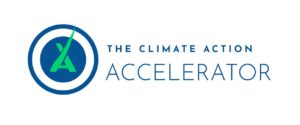



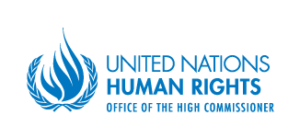
Updates
See allExperts
See all